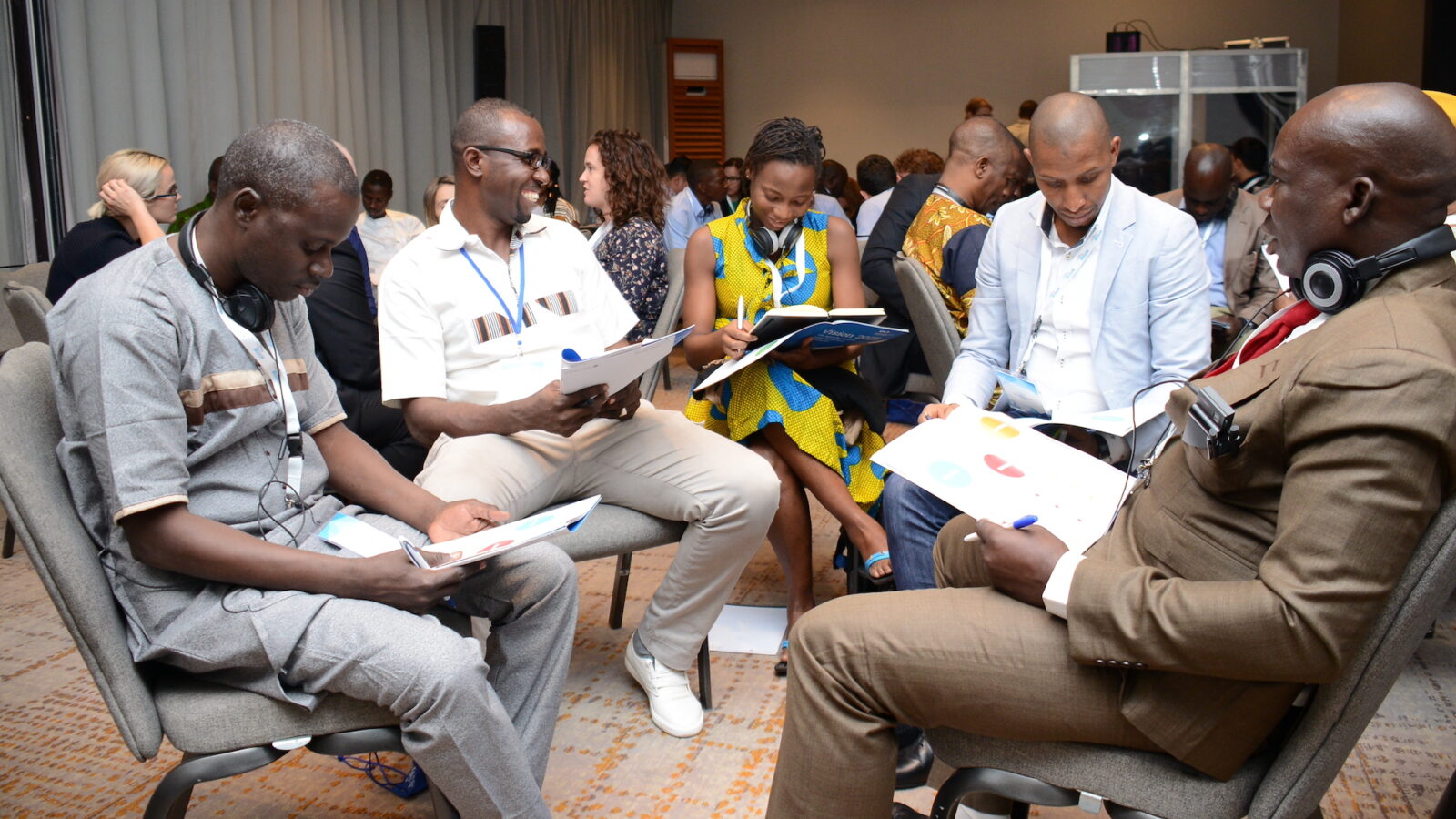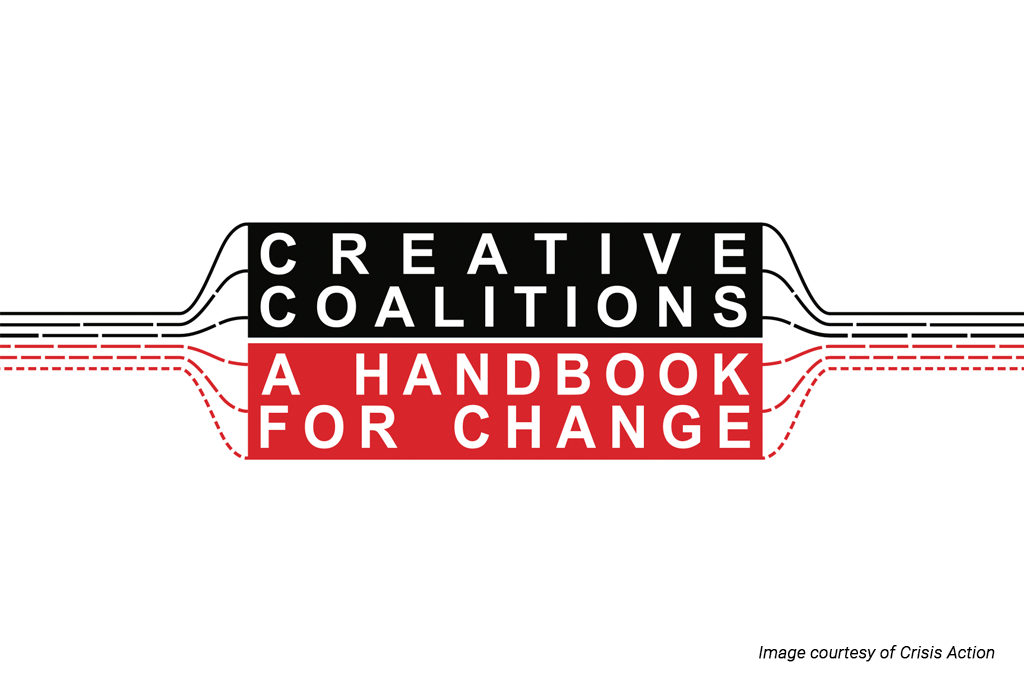Introduction
PWYP Malawi advocates for the transparent and accountable use of money the government receives from companies that extract the country’s natural resources. The Malawian EITI process (MWEITI) should offer a key channel for seeking such accountability. But one of the key challenges that the PWYP Malawi coalition has faced is in making the EITI process meaningful: going beyond data and transparency, using the process to push for meaningful reform – and accountability. When the coalition called for Government reform to address corruption that had been exposed in the licensing system, pursuing accountability through EITI proved to be challenging. PWYP Malawi members turned to their sister coalitions in the region, and, through exchanging experiences about their engagement in EITI, consolidated and strengthened the coalition’s practices.
A new era of reform?
The election of a new government in June 2020 renewed hopes in Malawi for better governance of the extractives sector. The newly independent Ministry of Mines pledged commitments to reviewing Petroleum Production Sharing Agreements; formalizing the Artisanal and Small-Scale Mining sector; and conducting other institutional reforms such as the establishment of a state owned mining company and a mining regulatory authority which would require a review of the newly enacted mining law. The enactment of an Access to Information Act, an increased willingness to address human rights issues and better engagement with civil society, also indicated a positive new direction. However, the Covid-19 pandemic slowed down reform, and when pushed on specific issues the government was less responsive than at first hoped.
Pushing for accountability
When a National Scandal broke in Malawi – following leaked audio recordings which revealed that conversations concerning the renewal of a license for a granite mine in Chitipa included negotiations for a bribe for a Ministry of Mines official – the Government ignored civil society’s calls for the implementation of overdue reforms that were relevant to the scandal. PWYP Malawi wrote to the government requesting that it act on existing EITI report recommendations to improve the licensing process but received no response. Civil society members took the issues to the MWEITI multi-stakeholder group to find out what actions were being taken by the Ministry, pointing out that the lack of response and failure to enact reforms breached the intention of the EITI process in creating accountability.
Civil society in Malawi felt confident enough to withhold participation in the 4th MWEITI process until their requests for accountability were taken seriously and until investigations into corruption and institutional reforms were initiated. The coalition also enabled civil society and community leaders from the Chitipa district to address government Ministries directly and demand that they act on the MWEITI report recommendations and address corruption in the licensing system.
PWYP Malawi began to identify the limits to political will in addressing the issue. PWYP Malawi reported that the Ministry became increasingly hostile and unwilling to participate in accountability fora and that officials attempted to discredit civil society, branding the coalition ‘unpatriotic’ for withholding participation in the MWEITI process; and the Government attempted to submit an EITI report without civil society input. The International Secretariat of the EITI however, reiterated the need for the report to be a multi-stakeholder effort and offered to mediate between civil society and government.
Integrating with sister coalitions to build confidence
The Malawi coalition continues to seek accountability from the Government and companies.
It also seeks further learning exchanges with sister coalitions and other international organisations about how they have gone about making transparency initiatives meaningful and effective in enabling real change to take place.
PWYP Malawi is a relatively ‘young’ coalition, formed in 2015 in response to the formation of the Malawi EITI. The coalition is large with 35 members, with a smaller group of which are particularly active. The coalitions sees itself as effective and fairly confident. Malawi and sister PWYP coalitions in the region, through exchanging experiences and approaches, had boosted each other’s confidence in seeking greater accountability from the EITI process, to avoid the situation where they were just advocating for ‘zombie data’ that has no impact.
As a result, PWYP Malawi had learned from coalitions in Tanzania, Zimbabwe and Zambia about EITI laws, model agreements and the establishment of community trusts. Through exchanging experiences with colleagues in the region, the national secretariat gained further understanding of the contexts of other countries and how that affects their advocacy approaches, and insight into what is possible in terms of advocacy, particularly through the EITI. Real time interaction with the regional group was very important, and the working friendships forged between the countries helped to strengthen the relationships between coalitions.
Consolidating the coalition
Building insight with sister coalitions in the region enabled PWYP Malawi to strengthen its mission and vision domestically and informed its creation of a new strategy. Although the coalition had become very ‘fleet-footed’ and responsive to evolving developments in national policymaking, it lacked a bigger vision of its mission, beyond covering an agreed set of issues, and its previous strategy had expired.
The coalition had become adept at reacting to emerging issues quickly and effectively, coordinating and connecting through rolling group conversations via Whatsapp and other platforms, resulting in effective division of labour, agreement on roles and high levels of participation and action. The direct, immediate, conversational and responsive nature of the WhatsApp format worked very well for coalition coordination.
The coalition also benefited from having an organization that could provide some resourcing to host the PWYP coordinator. In Malawi the NGO Centre for Environmental Policy and Advocacy (CEPA) enables PWYP coordination and as a result the coalition has been revitalized. CEPA is able to co-fund some coalition activities that align with its strategic priorities and its social and environmental focus also creates continuity in the links between PWYP and social and ecological issues. The PWYP coalition also draws on support from Open Society Initiative of Southern Africa (OSISA) to implement the Enhancing Revenue Transparency and Accountability in Malawi Project.
However, despite drawing strength through stable hosting and effective coordination, the coalition remained most effective at being reactive, and the national secretariat identified that the coalition was stronger when issues of interest were ‘under attack’. The national secretariat and key members understood that to be more effective the coalition needed to be more cohesive and to develop a new set of specific outcomes they were collectively working towards. As a result, the national secretariat has set about mapping out what members do and what value they might be able to contribute to determine the scope of the strategy. The national secretariat also hosted members meetings to determine collective objectives and plans. The coalition has set about strengthening its strategy by convening members and collectively identifying their goals and objectives.
Clarifying its role in the Malawi civil society ecosystem
The coalition also set out to clarify its role within the Malawian NGO ecosystem. PWYP Malawi was set-up by the Natural Resources Justice Network’s (NRJN) broader mandate of ensuring resources are managed for sustainable and equitable development. NRJN identified natural resource fiscal transparency as important to this mandate, and supported the set-up of PWYP Malawi to advocate for the transparent and accountable use of money the government receives from companies that extract the country’s natural resources. PWYP Malawi has a distinct role in Malawian civil society in forming a coalition around this purpose.
The scope of PWYP Malawi is narrow relative to the scope of NRJN – focusing on transparency related to revenue. Much of the rest of the NRJN network is focused on social and environmental issues. The original intention was that NRJN could use data to influence social and environmental outcomes. However, PWYP Malawi evolved and has often supported the network more broadly as an international initiative. Because of the overlaps and crossovers between the remits and governance of PWYP Malawi and NRJN, PWYP Malawi instigated a formal review process to resolve governance issues, expected to ease administrative and governance challenges for the networks, while enhancing collaboration.
Summary
PWYP Malawi faces tough challenges in making transparency and accountability systems work. The coalition has sought to make itself more effective through learning from sister coalitions, strengthening its strategy, taking a strategic approach to accountability fora, consolidating its organisational base and defining its role within the NGO ecosystem.
Learnings
- In order to be meaningful, engagement in the EITI process has to go beyond a commitment to contributing to EITI reports and data disclosure and towards seeking accountability and action on natural resource governance issues that ultimately affect whether citizens benefit or not. This is especially true given the levels of member capacity tied-up in EITI processes.
- The international EITI network could benefit from more knowledge and experience-sharing about lessons on how to make the EITI engagement strategic – and examples of how and where the EITI has been used to effect genuine change for the benefit of citizens.
- Exchanging experiences with sister PWYP coalitions in the region strengthens coalition strategy, efforts and confidence.
- Having an agreed coalition strategy with tangible goals and objectives is central to effectiveness.
- Depending on the context, light-touch communications can work extremely well in coordinating a coalition and enable effective division of labour, agreement on steps and high levels of participation and action. In the Malawi context the use of Whatsapp enabled a direct, interactive, rolling, and responsive conversation with members. Mailing lists and google groups did not work.
- In the Malawian context, having an NGO with an aligned mission hosting the coalition coordination has added value and capacity.
| Coalition | PWYP Malawi | ||||||||||||||||||||||
| Age in 2021 | 6 (est. 2015) | ||||||||||||||||||||||
| Membership shape | Fried egg shaped: Core very active members with larger membership | ||||||||||||||||||||||
| Membership size | LARGE: 35 members (NCC 2021 survey) | ||||||||||||||||||||||
| Unique value proposition | Advocacy on fiscal transparency and accountability in the extract sector | ||||||||||||||||||||||
| Major recent coalition internal challenges | Renewing strategy; clarifying its position in the ecosystem relative to its founding organization | ||||||||||||||||||||||
| Major ongoing contextual challenges | Government corruption, lack of government action/political will | ||||||||||||||||||||||
| Member mix | Anti-corruption, financial transparency, anti-poverty/development, tax justice, faith-based and human rights organizations. | ||||||||||||||||||||||
| Diversity in coalition leadership | |||||||||||||||||||||||
| Is the membership diverse in terms of different types of agency functions? | MEDIUM: Extractives expertise, grassroots connection, development agencies | ||||||||||||||||||||||
| Diversity of membership (groups represented) | MEDIUM: Diverse group of NGOs including NGOs/INGOs that work with citizen’s groups | ||||||||||||||||||||||
| Diversity in terms of promoting rights of specific groups explicitly in advocacy | MEDIUM: Member organisations include 3 indigenous peoples’ and 2 youth organisations/networks and 2 women’s organisations/networks (2021 National Coordinators Survey). The coalition seeks to promote the participation of women, youth and indigenous people in extractive governance. | ||||||||||||||||||||||
| Governance style | The National Coordinator is very active and hands-on and has also prompted strategy processes. Steering Committee agrees strategy | ||||||||||||||||||||||
| Leadership | Full time salaried Coordinator
Steering committee Board members (via NRJN) |
||||||||||||||||||||||
| How do members participate, coordinate and communicate? | Rolling social media conversations via whatsapp
Periodic face-to-face strategy meetings |
||||||||||||||||||||||
| How formal is the coalition? | Formal. | ||||||||||||||||||||||
| Are goals aligned with PWYP strategy or do coalitions have their own criteria? | Highly aligned. | ||||||||||||||||||||||
| Funding pattern | The host organisation (CEPA) enables coordination and co-funds some activities where there is a strategic cross-over between PWYP Malawi and CEPA; other funders help fund coalition governance (OSISA, NRGI); some other funders help fund specific activities (e.g Oxfam, NCA). | ||||||||||||||||||||||
| Links to PWYP peers | Coalition core is highly connected to regional peers. | ||||||||||||||||||||||
| Member Organisations | Members include:
Economics Association of Malawi (ECAMA) Center for Human Rights and Rehabilitation (CHRR) Malawi Economic Justice Network (MEJN) Malawi-Watch MISA-Malawi Norwegian Church Aid (NCA) ActionAid Malawi (AAM) Oxfam Malawi |











